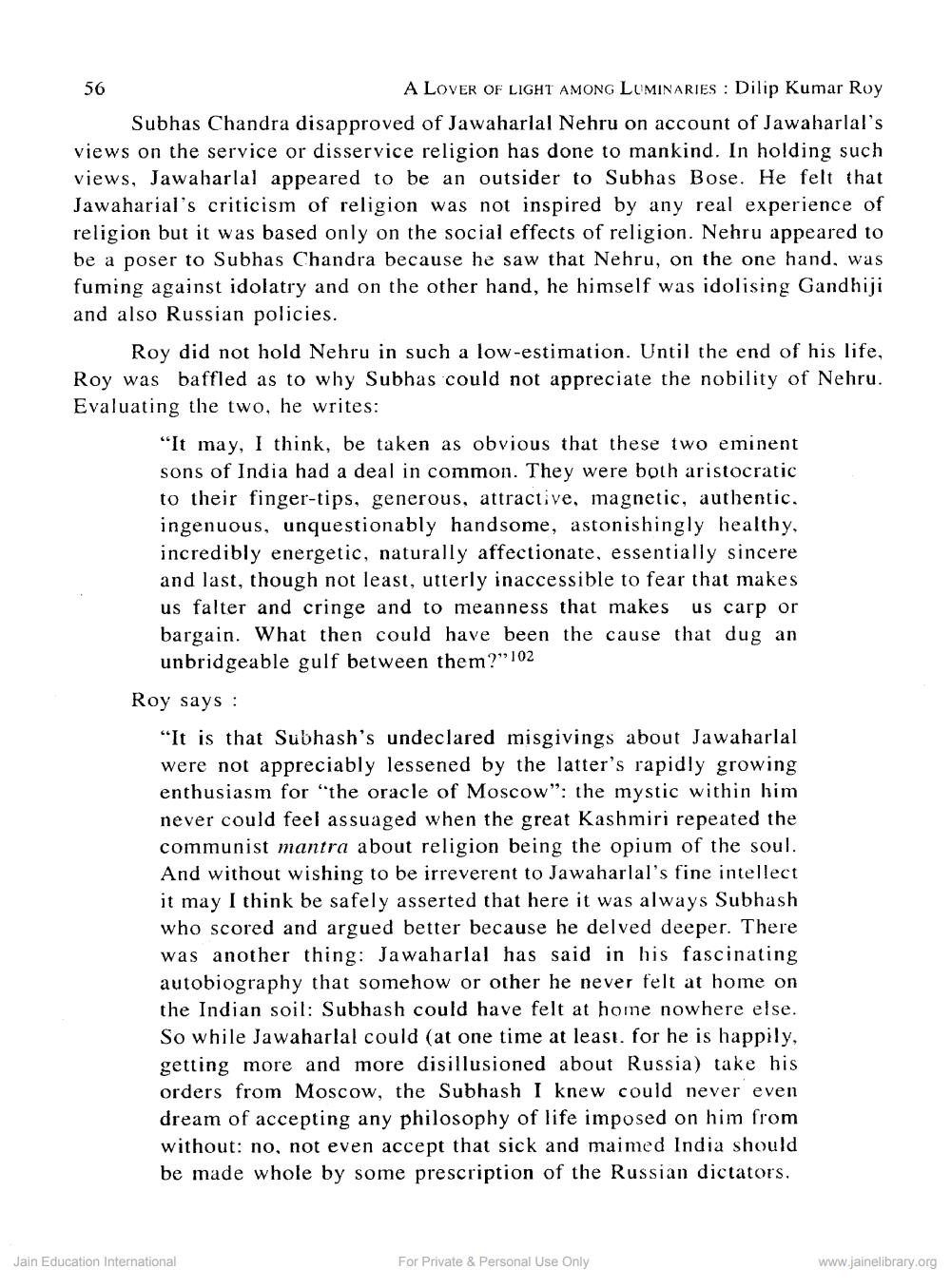________________
56
A LOVER OF LIGHT AMONG LUMINARIES : Dilip Kumar Roy Subhas Chandra disapproved of Jawaharlal Nehru on account of Jawaharlal's views on the service or disservice religion has done to mankind. In holding such views, Jawaharlal appeared to be an outsider to Subhas Bose. He felt that Jawaharial's criticism of religion was not inspired by any real experience of religion but it was based only on the social effects of religion. Nehru appeared to be a poser to Subhas Chandra because he saw that Nehru, on the one hand, was fuming against idolatry and on the other hand, he himself was idolising Gandhiji and also Russian policies.
Roy did not hold Nehru in such a low-estimation. Until the end of his life, Roy was baffled as to why Subhas could not appreciate the nobility of Nehru. Evaluating the two, he writes:
"It may, I think, be taken as obvious that these two eminent sons of India had a deal in common. They were both aristocratic to their finger-tips, generous, attractive, magnetic, authentic. ingenuous, unquestionably handsome, astonishingly healthy, incredibly energetic, naturally affectionate, essentially sincere and last, though not least, utterly inaccessible to fear that makes us falter and cringe and to meanness that makes us carp or bargain. What then could have been the cause that dug an
unbridgeable gulf between them?”102 Roy says:
"It is that Subhash's undeclared misgivings about Jawaharlal were not appreciably lessened by the latter's rapidly growing enthusiasm for "the oracle of Moscow": the mystic within him never could feel assuaged when the great Kashmiri repeated the communist mantra about religion being the opium of the soul. And without wishing to be irreverent to Jawaharlal's fine intellect it may I think be safely asserted that here it was always Subhash who scored and argued better because he delved deeper. There was another thing: Jawaharlal has said in his fascinating autobiography that somehow or other he never felt at home on the Indian soil: Subhash could have felt at home nowhere else. So while Jawaharlal could (at one time at leası. for he is happily, getting more and more disillusioned about Russia) take his orders from Moscow, the Subhash I knew could never even dream of accepting any philosophy of life imposed on him from without: no, not even accept that sick and maimed India should be made whole by some prescription of the Russian dictators.
Jain Education International
For Private & Personal Use Only
www.jainelibrary.org




